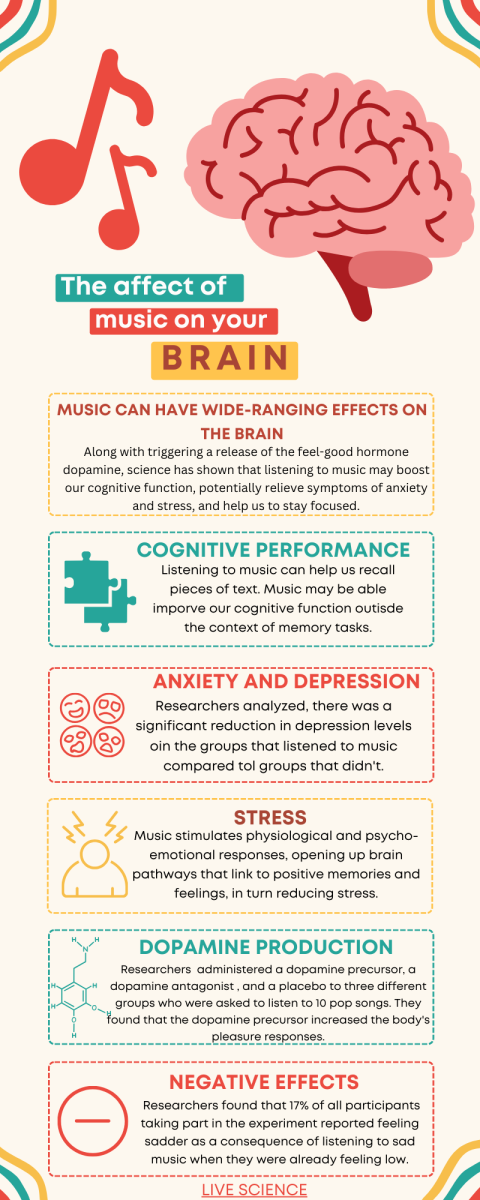Many people listen to music when they are studying, working out at the gym, or simply driving in their car. Did you know this music can have wide-ranging effects on the brain? From cognitive function to dopamine production, music has many effects that can be either positive or negative. Science has found that music helps us stay focused and is likely to help with our stress.
A psychotherapist in London, England, told Live science that, “When you hear a song, your auditory cortex- the part of your brain responsible for processing sound- is activated.” Furthermore, Silverstone adds, “This activates other areas of your brain, including the limbic system- responsible for emotion- and the motor cortex, which controls movement.”
In a 2008 study from Perception and Motor skills, researchers found that rhythm with or without supporting music can help us remember words or other pieces of information. Additionally a 2010 study by Perceptual and Motorskills showed that listening to music could actually enhance our brain processes. The experiment found that background music was connected to an increase in speed of recognition and our ability to process words. This enhancement was linked to a hypothesis that advocates for how music improves our level of how alert we feel according to a 2007 study by Aging Clinical and Experimental Research.
Music may be beneficial when reducing symptoms of depression. There could be a notable reduction in depression symptoms compared to people who do not listen to music. Older individuals showed more of an improvement when they were in music therapy or simply listening to music. Music therapy involves play, composing, listening to, or interacting with music. Psychotherapist Jordan Vyas-Lee, found that listening to upbeat music cna light up networks that store positive and personal memories. Vyas-Lee states that music alone cannot “cure” depression, but it “can act as an aid to recovery.”
Experts have said that listening to music can also lower stress levels both mentally and physically. A 2015 study done by The Lancet shows that listening to music before, during, and after surgery is likely to reduce pain and stress related to the procedure. Music “fundamentally affects the release of neurochemicals in the brain, increasing the release of serotonin and dopamine and reducing the effects of cortisol,” Vyas-Lee observes.
Whether you are working out to an upbeat playlist or jamming out on your way to school, music is working its ways to help improve your day. Science has shown that music can decrease your stress and anxiety.










Tanshi • Jul 3, 2024 at 2:50 am
This is a great infographic about the effects of music on the brain! I am a graduate student studying to become a therapist and was looking for an infographic on this for clients. This is very well organized, aesthetically pleasing, and an accurate summary of the research.